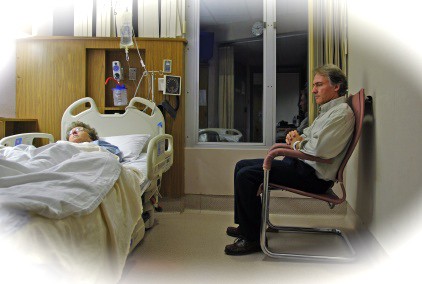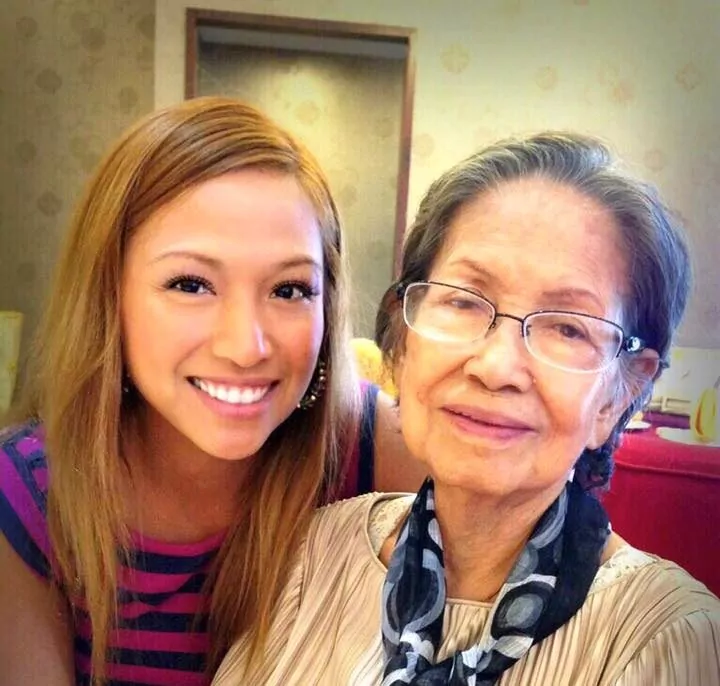 Radiation therapy (also called radiotherapy) is a cancer treatment that uses high doses of radiation to kill cancer cells and stop them from spreading. At low doses, radiation is used as an x-ray to see inside your body and take pictures, such as x-rays of your teeth or broken bones. Radiation used in cancer treatment works in much the same way, except that it is given at higher doses.
Radiation therapy (also called radiotherapy) is a cancer treatment that uses high doses of radiation to kill cancer cells and stop them from spreading. At low doses, radiation is used as an x-ray to see inside your body and take pictures, such as x-rays of your teeth or broken bones. Radiation used in cancer treatment works in much the same way, except that it is given at higher doses.
How is radiation therapy given?
Radiation therapy can be external beam (when a machine outside your body aims radiation at cancer cells) or internal (when radiation is put inside your body, in or near the cancer cells). Sometimes people get both forms of radiation therapy.
Who gets radiation therapy?
Many people with cancer need radiation therapy. In fact, more than half (about 60 percent) of people with cancer get radiation therapy. Sometimes, radiation therapy is the only kind of cancer treatment people need.
What does radiation therapy do to cancer cells?
Given in high doses, radiation kills or slows the growth of cancer cells. Radiation therapy is used to:
- Treat cancer. Radiation can be used to cure, stop, or slow the growth of cancer.
- Reduce symptoms. When a cure is not possible, radiation may be used to shrink cancer tumors in order to reduce pressure. Radiation therapy used in this way can treat problems such as pain, or it can prevent problems such as blindness or loss of bowel and bladder control.
How long does radiation therapy take to work?
Radiation therapy does not kill cancer cells right away. It takes days or weeks of treatment before cancer cells start to die. Then, cancer cells keep dying for weeks or months after radiation therapy ends.
What does radiation therapy do to healthy cells?
Radiation not only kills or slows the growth of cancer cells, it can also affect nearby healthy cells. The healthy cells almost always recover after treatment is over. But sometimes people may have side effects that do not get better or are severe.
Doctors try to protect healthy cells during treatment by:
1. Using as low a dose of radiation as possible.
The radiation dose is balanced between being high enough to kill cancer cells yet low enough to limit damage to healthy cells.
2. Spreading out treatment over time.
You may get radiation therapy once a day for several weeks or in smaller doses twice a day. Spreading out the radiation dose allows normal cells to recover while cancer cells die.
3. Aiming radiation at a precise part of your body.
New techniques, such as IMRT and 3-D conformal radiation therapy, allow your doctor to aim higher doses of radiation at your cancer while reducing the radiation to nearby healthy tissue.
4. Using medicines.
Some drugs can help protect certain parts of your body, such as the salivary glands that make saliva (spit).
Does radiation therapy hurt?
Radiation therapy does not hurt while it is being given. But the side effects that people may get from radiation therapy can cause pain or discomfort.
Is radiation therapy used with other types of cancer treatment?
Radiation therapy is often used with other cancer treatments.
Here are some examples:
A. Radiation therapy and surgery
Radiation may be given before, during, or after surgery. Doctors may use radiation to shrink the size of the cancer before surgery, or they may use radiation after surgery to kill any cancer cells that remain. Sometimes, radiation therapy is given during surgery so that it goes straight to the cancer without passing through the skin. This is called intraoperative radiation.
B. Radiation therapy and chemotherapy
Radiation may be given before, during, or after chemotherapy. Before or during chemotherapy, radiation therapy can shrink the cancer so that chemotherapy works better. Sometimes, chemotherapy is given to help radiation therapy work better. After chemotherapy, radiation therapy can be used to kill any cancer cells that remain.
Should I follow a special diet while I am getting radiation therapy?
Your body uses a lot of energy to heal during radiation therapy. It is important that you eat enough calories and protein to keep your weight the same during this time. Ask your doctor or nurse if you need a special diet while you are getting radiation therapy. You might also find it helpful to speak with a dietitian.
To learn more about foods and drinks that are high in calories or protein, see “Foods and Drinks That Are High in Calories or Protein “. You may also want to read Eating Hints , a book from the National Cancer Institute. You can order a free copy online at www.cancer.gov/publications or 1-800-4-CANCER.
Can I go to work during radiation therapy?
Some people are able to work full-time during radiation therapy. Others can only work part-time or not at all. How much you are able to work depends on how you feel. Ask your doctor or nurse what you may expect based on the treatment you are getting.
You are likely to feel well enough to work when you start radiation therapy. As time goes on, do not be surprised if you are more tired, have less energy, or feel weak. Once you have finished your treatment, it may take a few weeks or many months for you to feel better.
You may get to a point during your radiation therapy when you feel too sick to work. Talk with your employer to find out if you can go on medical leave. Make sure that your health insurance will pay for treatment when you are on medical leave.
What happens when radiation therapy is over?
Once you have finished radiation therapy, you will need follow-up care for the rest of your life. Follow-up care refers to checkups with your radiation oncologist or nurse practitioner after your course of radiation therapy is over. During these checkups, your doctor or nurse will see how well the radiation therapy worked, check for other signs of cancer, look for late side effects, and talk with you about your treatment and care.
Your doctor or nurse will:
- Examine yourself and review how you have been feeling. Your doctor or nurse practitioner can prescribe medicine or suggest other ways to treat any side effects you may have.
- Order lab and imaging tests. These may include blood tests, x-rays, or CT, MRI, or PET scans.
- Discuss treatment. Your doctor or nurse practitioner may suggest that you have more treatment, such as extra radiation treatments, chemotherapy, or both.
- Answer your questions and respond to your concerns. It may be helpful to write down your questions ahead of time and bring them with you. You can find sample questions in “Questions To Ask Your Doctor or Nurse “.
Is radiation therapy expensive?
Radiation therapy costs a lot of money. It uses complex machines and involves the services of many health care providers. The exact cost of your radiation therapy depends on the cost of health care where you live, what kind of radiation therapy you get, and how many treatments you need.
Talk with your health insurance company about what services it will pay for. Most insurance plans pay for radiation therapy for their members. To learn more, talk with the business office where you get treatment. You can also contact the National Cancer Institute’s Cancer Information Service and ask for the “Financial Assistance for Cancer Care ” fact sheet.
After radiation therapy is over, what symptoms should I look for?
You have gone through a lot with cancer and radiation therapy. Now you may be even more aware of your body and how you feel each day. Pay attention to changes in your body and let your doctor or nurse know if you have:
- A pain that does not go away
- New lumps, bumps, swellings, rashes, bruises, or bleeding
- Appetite changes, nausea, vomiting, diarrhea, or constipation
- Weight loss that you cannot explain
- A fever, cough, or hoarseness that does not go away
- Any other symptoms that worry you
Source: National Cancer Institute
For more information, please visit the National Cancer Institute at www.cancer.gov
Other La Dolce Living Helpful Links:
- Seniors Online Community & Discussion Forum
- Senior Care Facility Search
- Senior Facility Registration
Catharine “Kate” is a Certified Administrator for Residential Care Facilities for the Elderly (RCFE) and an Expert Senior Care Advisor. Kate’s grandmother battled Alzheimer’s Disease and Kate personally understands what millions of families are going through. Kate and her team are very passionate in empowering Seniors and their families by providing them with the Best Available Senior Care Options based on Senior’s care needs, preferred location and family’s budget.


